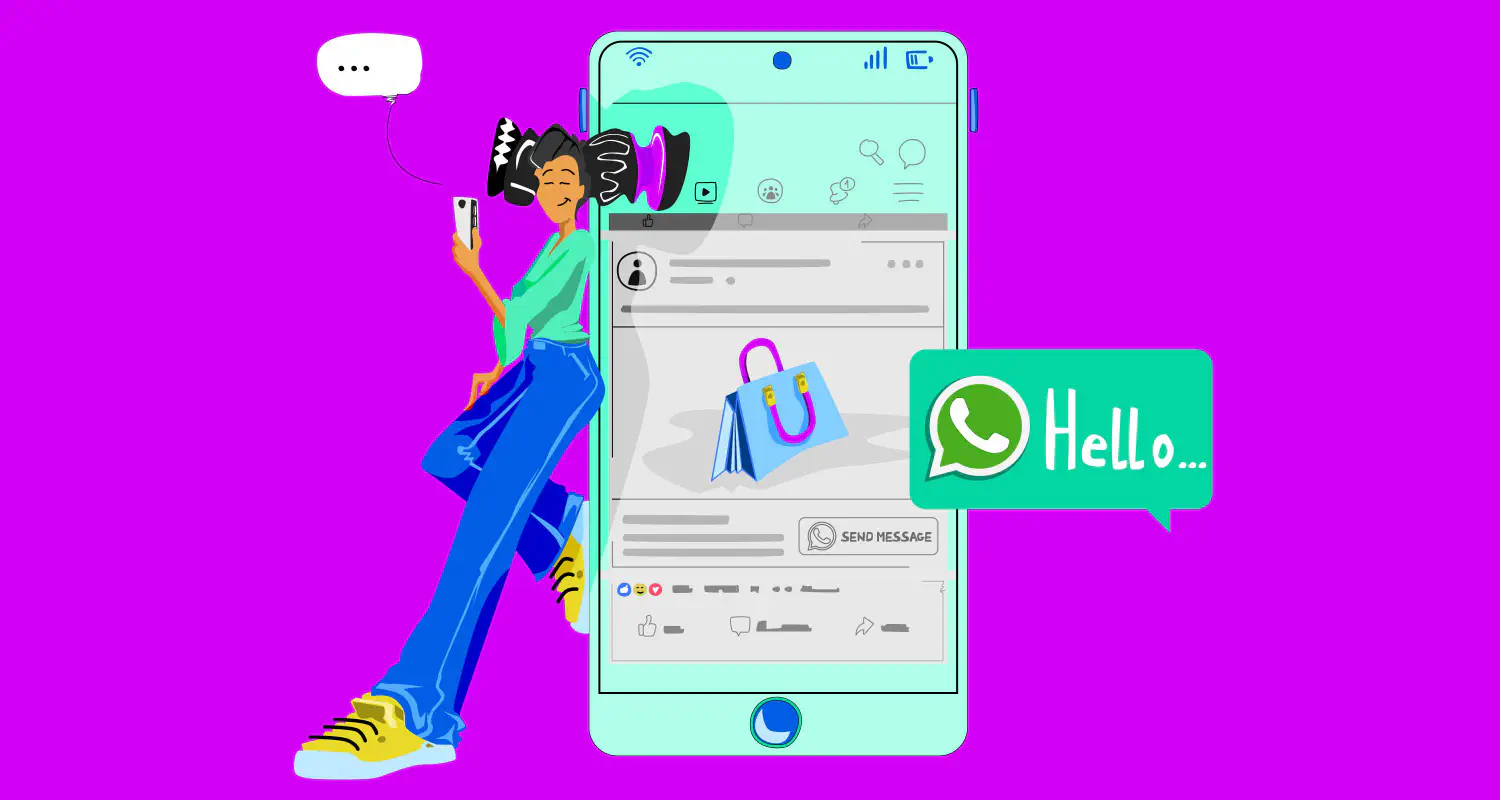WhatsApp Marketing vs Email Marketing: What Converts Better?
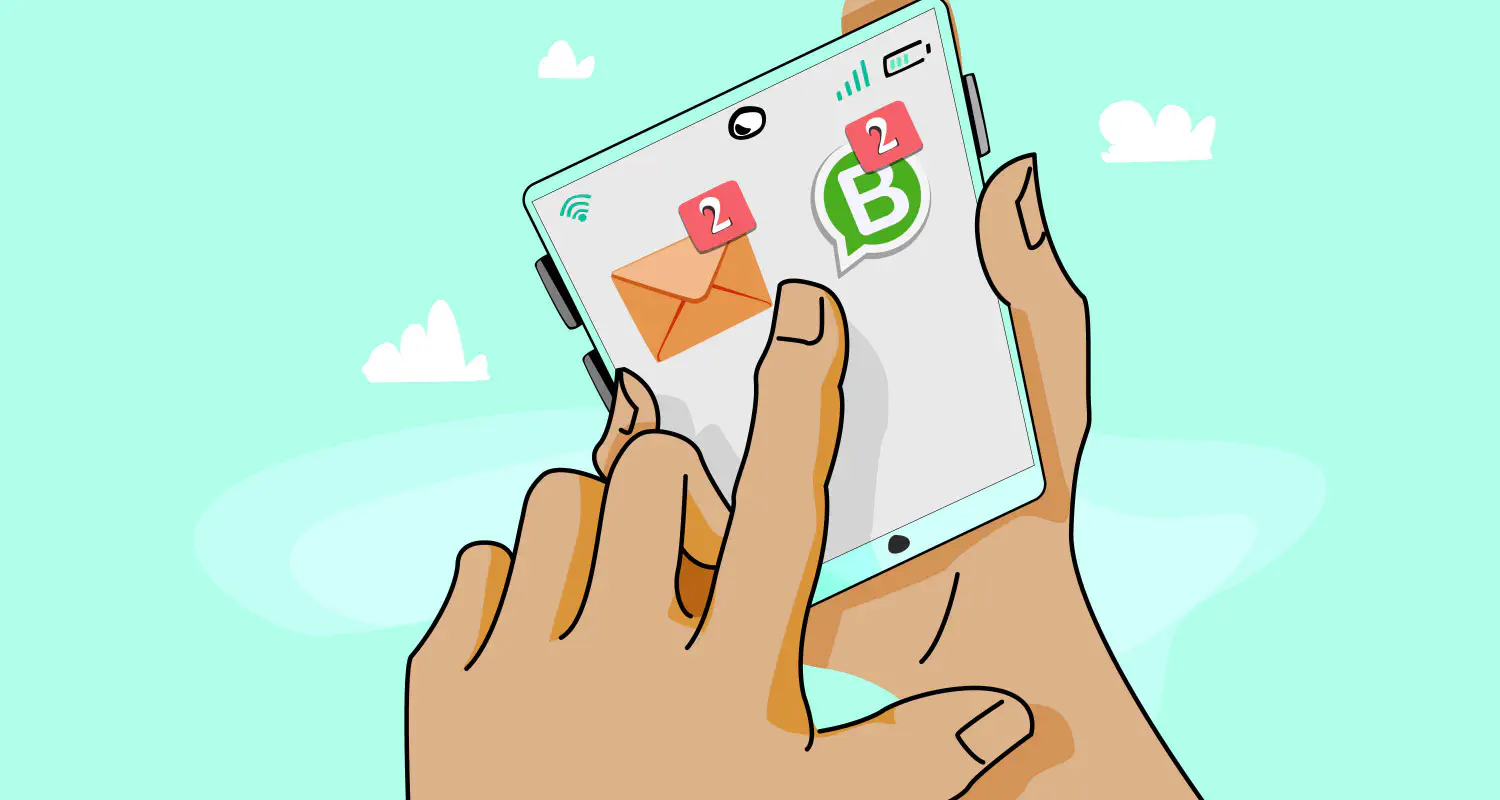
B2B email campaigns aren’t cutting it anymore. You spend hours preparing them, and if you’re lucky, you’ll get about 5% replies, 30% open rate. You might try to change your tactics or campaign content, but it’s not the main issue. The channel you’re using is the issue.
On any given day, the average professional receives over 100 emails, and opens less than a third. Between newsletters, promotions, meeting invites, and internal threads, their inbox becomes a chaos.
To connect with modern B2B buyers, you need to meet them in a space where attention is still possible and action is immediate. For a growing number of businesses, that space is WhatsApp.
In this article, we’ll discuss the difference between WhatsApp marketing and email marketing and why the former is better for engagement.
Why B2B teams are relying less on Email
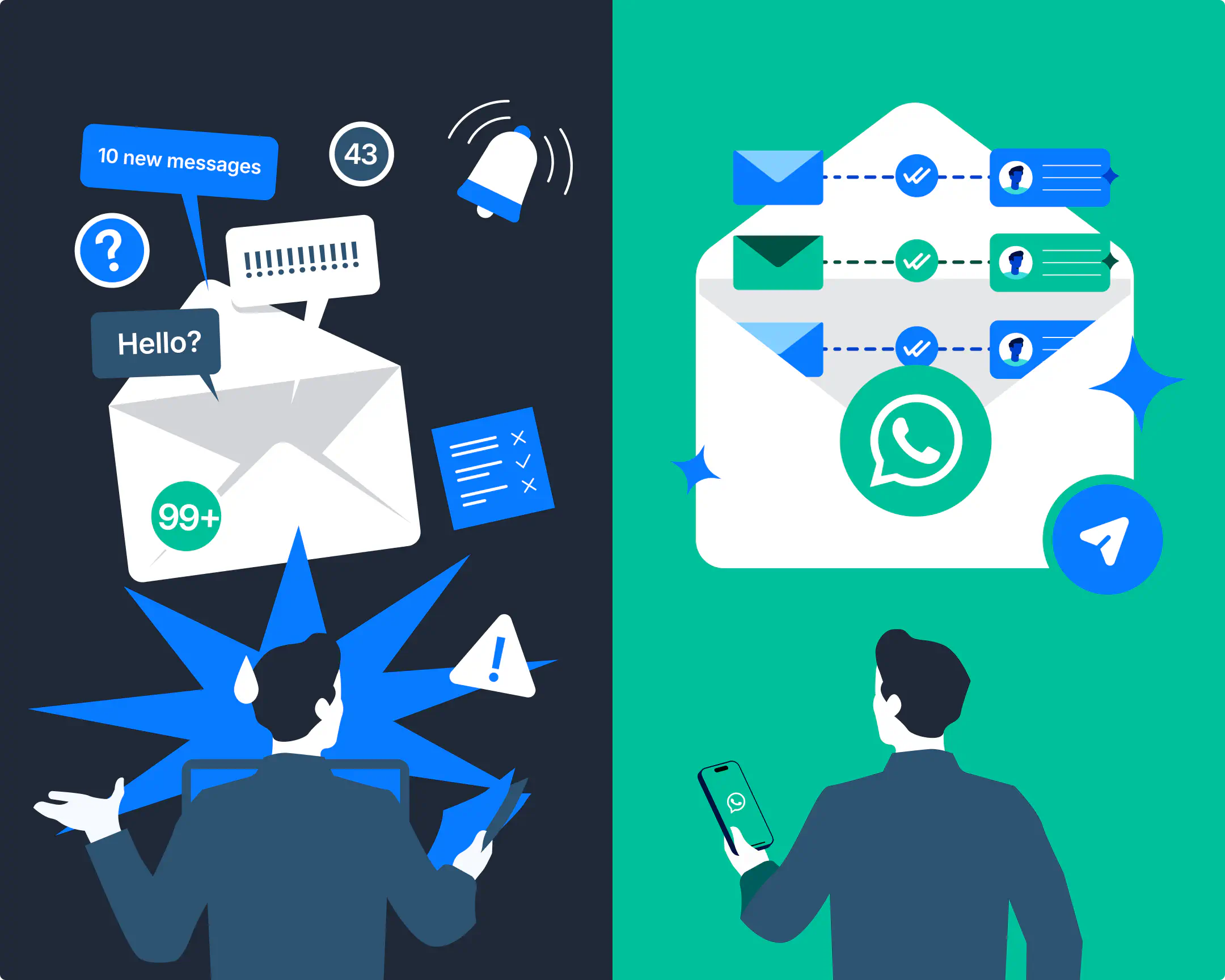
B2B teams are turning away from email because it no longer gives the desired outcome. It doesn’t guarantee attention or action, and it’s becoming slow compared to other faster channels.
Here’s why email is losing its grip as a primary channel for B2B sales and marketing:
- Inbox overload: The average professional receives 100+ emails per day. Buyers are overwhelmed, and many messages never even get opened.
- Lack of real personalization: Most emails feel generic, even when they’re part of a smart sequence.
- Automation fatigue: Everyone’s using the same automation techniques with no personalization whatsoever. Readers can detect that the email wasn’t personalized for them.
- Deliverability issues: Emails can end up in spam folders or be blocked by email providers, which can hinder deliverability. Implementing DMARC generator for business can help authenticate emails, improve deliverability, and reduce the chances of messages being flagged as spam.
- Slow, delayed responses: Even when a buyer is interested, the back-and-forth over email can take days. That lag slows down your entire funnel.
That’s why forward-thinking B2B teams are moving to WhatsApp.
Unlike email, marketing on WhatsApp is instant, conversational, and personal. It’s the perfect replacement for businesses that want an easy and fast way to connect with buyers, and it’s much harder to ignore a WhatsApp message than it is to ignore an email.
What is the difference between WhatsApp and Email marketing?
Both channels have their place in B2B marketing, but they serve different purposes. If you’re looking to build real-time, high-engagement communication with prospects, WhatsApp offers a major advantage. Here’s how they compare:
| Feature / Metric | Email marketing | WhatsApp marketing |
|---|---|---|
| Open rate | ~20–30% (often lower in B2B) | 90%+ (most messages read within minutes) |
| Response rate | 5–10% | 30–60% (especially for warm leads) |
| Speed of communication | Hours or days | Real-time or within minutes |
| Personalization | Limited; often templated | High; feels like 1:1 conversation |
| Engagement format | Mostly static (text/images/links) | Interactive (text, voice, images, quick replies, buttons) |
| Formality | High – suits long-form and formal updates | Medium – better for casual, actionable chats |
| User behavior | Skimmed or ignored | Opened and replied to |
| Use case fit | Newsletters, product updates, long-form content | Lead qualification, nurturing, deal acceleration |
| Delivery noise | High – crowded inbox | Low – WhatsApp inbox is still signal over noise |
When to use WhatsApp over email in B2B marketing campaigns
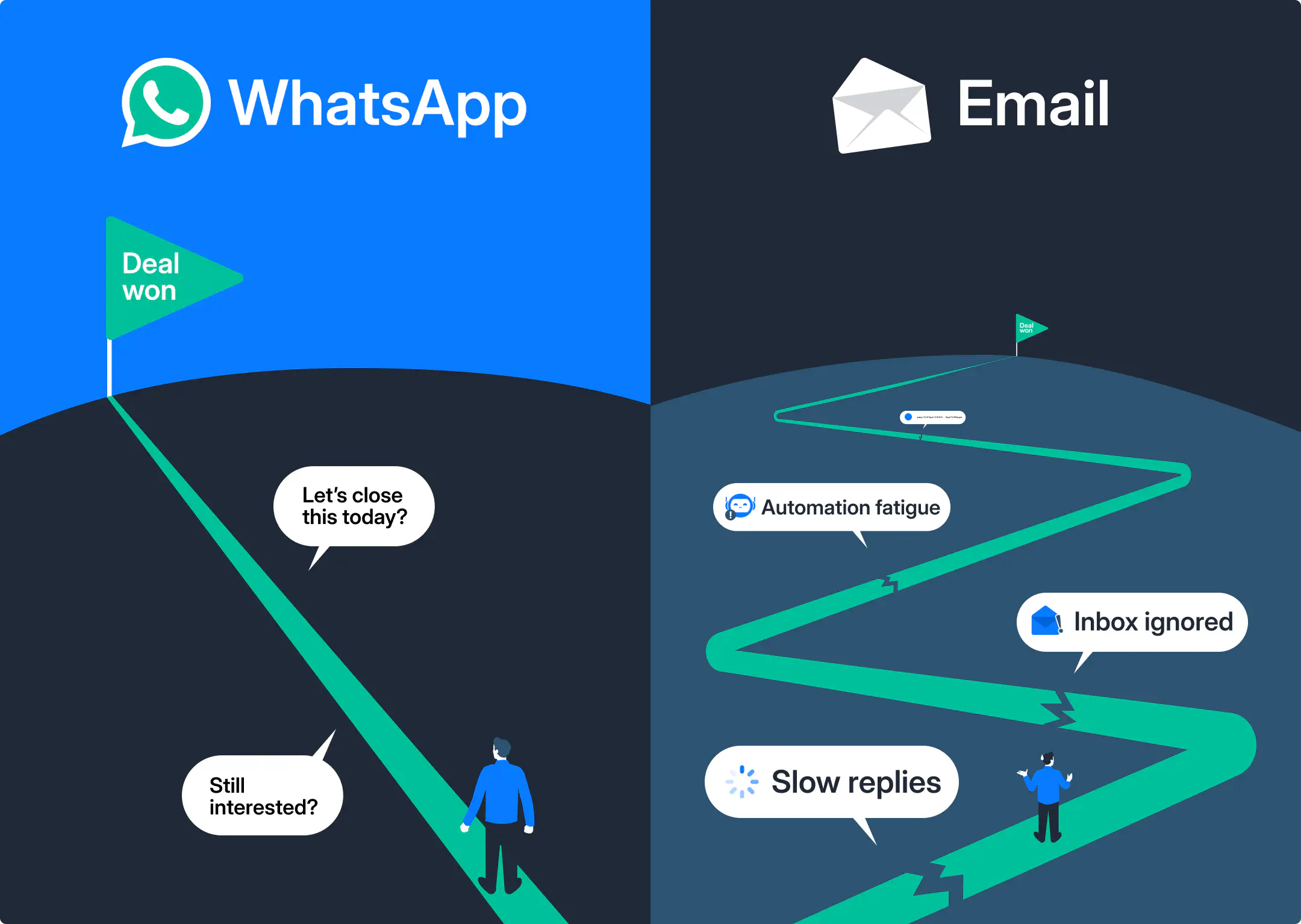
Businesses use WhatsApp in B2B campaigns when they need faster engagement, deeper personalization, and higher response rates.
Here are the key scenarios where WhatsApp outperforms email:
- Re-engaging warm leads: When someone’s shown interest but gone quiet, a quick, casual WhatsApp follow-up message can restart the conversation more effectively than a formal follow-up email.
- Sending personalized follow-ups: After a demo or call, WhatsApp lets you follow up in a human, direct way, keeping the tone friendly and the momentum going.
- Accelerating deals with faster replies: Need a decision, clarification, or document approval? WhatsApp cuts the wait time compared to traditional email chains.
- High-value account outreach: When you’re reaching out to decision-makers at key accounts, WhatsApp feels more personal and gets noticed faster than email.
- Collecting feedback: Simple check-ins like “Are you still interested?” or “Was the pricing clear?” are far more likely to get responses via WhatsApp than in a crowded inbox.
- Reactivating cold but qualified leads: For leads who went quiet months ago but showed potential, WhatsApp offers a softer, less intrusive way to reintroduce the conversation.
How to use WhatsApp for marketing the right way
Using WhatsApp for marketing the right way means respecting the channel’s personal nature while leveraging its power for timely, targeted communication.
Unlike email, WhatsApp is an intimate, real-time space. If you treat it like just another mass marketing channel, you risk being ignored. Here’s how to do it right:
- Always get opt-ins: You need to get WhatsApp opt-ins from customers before messaging them. If you don’t or if you message customers who’ve opted out, you risk your brand reputation, and customers might report your business account.
- Tie messaging to CRM activity: Sync WhatsApp with your CRM so your outreach is based on real context, like deal stage, last interaction, or time since last response. This ensures relevance and avoids unnecessary nudges.
- Focus on quality over quantity: Don’t use WhatsApp broadcasts mindlessly. Target a specific group of customers only and focus on high-value conversations and timely messages. Those perform much better than generic campaigns.
Conclusion
Email still has its place in the B2B world, but it’s no longer enough on its own. If you want to cut through the noise, connect faster, and keep your funnel moving, WhatsApp is the right choice.
Used thoughtfully, WhatsApp gives B2B teams a direct line to decision-makers, turning cold follow-ups into warm conversations and stalled deals into closed revenue.
Book a strategy session

Omar Nabil, a former programmer, discovered his passion for writing while working on websites. Combining analytical thinking with creativity, he crafts brand stories that emotionally resonate and inspire action.

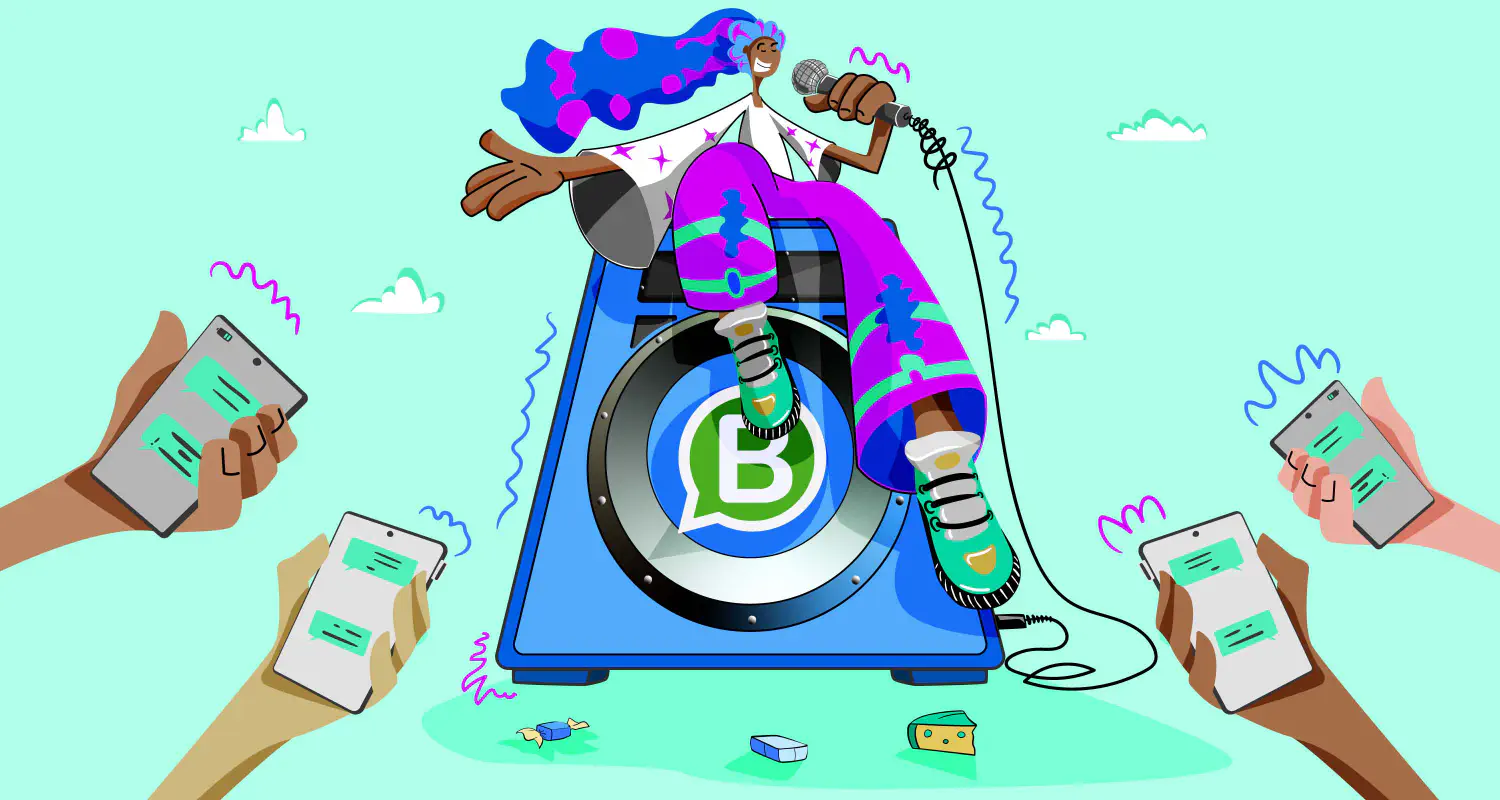

![How to Send WhatsApp Bulk Messages Without a Ban [+Templates]](https://learn.rasayel.io/en/blog/whatsapp-bulk-messages/cover_hu8117970851652439586.webp)

